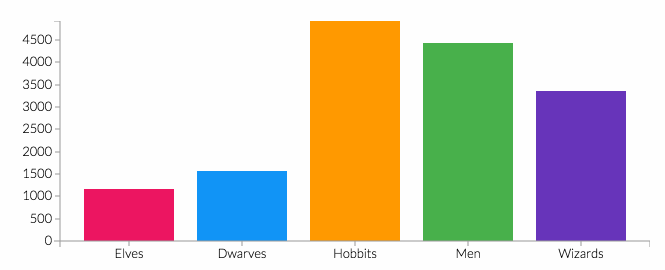PERAN BIMBEL IBU BANGSA DALAM MENDUKUNG KESIAPAN BERSEKOLAH ANAK USIA DINI DARI KELUARGA KURANG MAMPU SEBUAH STUDY KASUS
DOI:
https://doi.org/10.33853/istighna.v2i1.175Keywords:
School Readiness, Early Childhood Education, Low-Income FamilyAbstract
Children from poor families are facing great challenges as they are growing up. Limited resources, low-level parents’ education, and environments have given impacts on how the families raise their children and prepare them for school. This research is to find out how a school readiness program initiated by Bimbel Ibu Bangsa for children of poor families at Kampung Gunung Sari can help them to get a quality education program and also to help parents implement effective parenting styles for the success of their children. A qualitative approach with a case-study model was used. The subject of this study consisted of 4 students out of the 16 students involved in the program. The data were collected by using participatory observations, home-visit notes, field notes, voice and visual recordings, and also by interviewing the parents and teachers. The validity of data was determined by triangulating and member-checking the data. The results of this research indicate that this program is quite able to be held with low budgets and will still be able to give quality education if the program is supported by the stakeholders in the community. The results also show that children and parents enrolled in this program gain many benefits shown by their adaptive parenting styles and children’s modified behaviours for the upcoming school readiness and overall better quality of life.Downloads
References
Awanih, walimurid. Interview by Author, 17 May 2017, Tangerang. Audio recording. Bimbel Ibu Bangsa, Tangerang.
Badan Kependudukan dan Keluarga Berencana Nasional (BKKBN), Kamus Istilah Kependudukan. Home page on-line. Available from http://babel.bkkbn.go.id /data / Documents/kamus-Istilah.doc (accessed 22 November 2017).
Badan Pusat Statistik (BPS), Pendataan Program Perlindungan Sosial 2011. Home page on-line. Available from catalog.ihsn.org/index.php/catalog/4020/down load/54630, (accessed 01 December 2017).
⸻, Karakteristik Rumah Tangga Miskin dan Rumah Tangga Tidak Miskin. Home page on-line. Available from https://www.bps.go.id/linkTableDinamis/view/id/908 (accessed 11 May 2017).
⸻, Kemiskinan dan Ketimpangan: Konsep. Home page on-line. Available from https://www.bps.go.id/Subjek/view/id/23#subjekViewTab1|accordiondaftarsubjek1 (accessed 11 May 2017).
Barnett, Steven, Long-Term Effects of Early Childhood Programs on Cognitive and School Outcomes. Available from https://www.princeton.edu/futureofchildren/publica-tions/docs/05_03_01.pdf (accessed 11 May 2017).
Baumrind, Diana. (1967). Child Care Practices Anteceding Three Patterns Of Preschool Behavior. Genetic Psychology Monographs, 75(1), 43-88. Available from http://persweb.wabash.edu/facstaff/hortonr/articles%20for%20class/baumrind.pdf (accessed 01 December 2017).
Berk, Laura E., Development Through the Lifespan: Dari Prenatal sampai Remaja (Transisi Menjelang Dewasa), 5th ed. Boston: Pearson Education, 2010. Edisi terjemahan. Yogyakarta: Pustaka Pelajar, 2012.
Bronfenbrenner’s Ecological Theory. Home page on-line. Available from http://sarahkaye.com/feiv/DissertationAbstracts/bronfenbrenner+ecological+theory+of+development+essayshark-4945 (accessed 07 December 2017).
Chan, BMY, “Challenges to Parenting: The Local Sceneâ€. Proceeding (2004). Available from http://www.hkjpaed.org/pdf/2004;9;182-184.pdf, (accessed 01 December 2017).
Child Trends. “Early School Readiness,†Child Trends Online. Home page on-line. Available from https://www.childtrends.org/indicators/early-school-readiness/; Internet; accessed 25 February 2018.
ECLKC. “School Readiness,†Head Start ECLKC. Home page on-line. Available from https://eclkc.ohs.acf.hhs.gov/school-readiness; Internet; accessed 24 February 2018.
Emzir, Analisis Data : Metodologi Penelitian Kualitatif. Jakarta: Rajawali Pers, 2012.
Ernawati, Een, guru. Interview by Author, 22 November 2017, Tangerang. Audio recording. Bimbel Ibu Bangsa, Tangerang.
Evans, Gary, The Environment of Childhood Poverty. American Psychologist, Vol. 59, No. 2, 77-92. New York: 2004. Available from http://people.auc.ca/brodbeck/4007/Arti
cle9.pdf, (accessed 01 December 2017).
Hasan, A., M. Hyson, and M.C. Chang, Early Childhood Education and Development in Poor Villages of Indonesia: Strong Foundations, Later Success. Home page on-line. Available from https://openknowledge.worldbank.org/bitstream handle/1098
/15799/784840PUB0EPI0000PUBDATE06011020130.pdf?sequence=1(access-ed 11 May 2017).
Henniger, Michael L., Teaching Young Children: an Introduction. 4th ed. New Jersey: Pearson, 2009.
Herdiansyah, Haris, Wawancara, Observasi, dan Focus Group Sebagai Instrumen Penggalian Data Kualitatif. Jakarta: Rajawali Pers, 2013.
High, Pamela, and The Committee on Early Childhood, Adoption, and Dependent Care and Council on School Health. “School Readinessâ€, Journal of Pediatrics 121 (2008). [e-journal]. http://pediatrics.aappublications.org/content/121/4/e1008.full (accessed 10 February 2018)
Indriyanti, Yuli, guru. Interview by Author, 22 November 2017, Tangerang. Audio recording. Bimbel Ibu Bangsa, Tangerang.
Iyat, walimurid. Interview by Author, 18 May 2017, Tangerang. Audio recording. Bimbel Ibu Bangsa, Tangerang.
Kementerian Pendidikan dan Kebudayaan RI, Peraturan Menteri Pendidikan dan Kebudayaan RI No.137 Tahun 2014 Tentang Standar Nasional Pendidikan Anak Usia Dini. Home page on-line. Available from http://paud.kemdikbud.go.id /resource/peraturan-uu/ (accessed 01 December 2017).
Medina, Raihana A., guru. Interview by Author, 22 November 2017, Tangerang. Audio recording. Bimbel Ibu Bangsa, Tangerang.
Melania, Neni, walimurid. Interview by Author, 14 March 2017, Tangerang. Audio recording. Bimbel Ibu Bangsa, Tangerang.
Persiapan Kompetensi/Kapasitas untuk Transisi ke Sekolah. Diterjemahkan dari Building Competency/Capacity for Transition to School. Home page online. Available from https://www.unicef.org/earlychildhood/files/Child2Child_ConceptualFramework_ FINAL(1).pdf (accessed 23 February 2018)
Ramey, Craig and Sharon Ramey, “Early Intervention and Early Experience,†Journal of American Psychologist, Vol. 53, No. 2, 109-120 (1998). [e-journal] https://static.vtc.vt.edu/media/documents/179__Early_intervention_and_Early_in-tervention_and_early_experience.pdf (accessed 28 November 2017).
Roslina, guru. Interview by Author, 22 November 2017, Tangerang. Audio recording. Bimbel Ibu Bangsa, Tangerang.
Sacks, Vanessa, 5 Ways Neighborhoods of Concentrated Disadvantage Harm Children. Home page on-line. Available from https://www.childtrends.org/ child-trends-5/five-ways-neighborhoods-concentrated-disadvantage-harm-children/; Internet; accessed 23 February 2018.
Sekretariat Kabinet Republik Indonesia, BPS: Per September 2016, Jumlah Penduduk Miskin Indonesia Berkurang 0,25 Juta. Home page on-line. Available from http://setkab.go.id/bps-per-september-2016-jumlah-penduduk-miskin-indonesia-bekurang-025-juta/ (accessed May 2017).
Shonkoff, Jack, dan Samuel Meisels, Early Childhood Intervention: The Evolution of a Concept, 2nd ed., Cambridge; Cambridge University Press, 2000. Available from https://www.bc.edu/content/dam/files/schools/lsoe/pdf/EICS/EarlyChildhoodInterventionTheEvolutionofaConcept.pdf (accessed 28 November 2017).
Sukmana, Yoga, Berapa Penghasilan yang Masuk Kategori Miskin di Indonesia?. Home page on-line. Available from http://ekonomi.kompas.com/read /2017/07/06/18364 0226/berapa.penghasilan.yang.masuk.kategori.miskin.di.indonesia. (accessed 08 February 2018)
Tim Nasional Percepatan Penanggulangan Kemiskinan (TNP2K), Program Penanggulangan Kemiskinan di Indonesia. Home page on-line. Available from http://www.tnp2k.go.id/id/program/sekilas/ (accessed 11 May 2017).
Yin, Robert K., Studi Kasus: Desain dan Metode. Jakarta: Raja Grafindo Persada, 1996.
Vargas-Baron, Emily, Ulf Janson, and Natalia Mufel, Early Childhood Intervention, Special Education and Inclusion: A Focus on Belarus, UNICEF publications (2009). [e-journal]. Available from https://www.unicef.org/eca/Belarus_English. pdf (accessed 27 November 2017).
Wardle, Francis, Introduction to Early Childhood Education: A Multidimensional Approach to Child-Centered Care and Learning. Boston: Pearson Education, 2003
World Health Orgaization (WHO), Early Childhood Development and Disability: a Discussion Paper, Genewa: WHO, 2012. Available from http://apps.who.int/ iris/bitstream/10665/75355/1/9789241504065_eng.pdf (accessed 28 November 2017).
Wortham, Sue, Early Childhood Curriculum:Developmental Bases for Learning and Teaching, 4th ed. New Jersey: Pearson-Merrill Prentice Hall, 2006.
Downloads
Published
How to Cite
Issue
Section
License
Copyright Notice
Authors hold and retain copyright and grant the journal right of first publication with the work simultaneously licensed under a http://creativecommons.org/licenses/by-sa/4.0that allows others to share the work with an acknowledgment of the work's authorship and initial publication in this journal.

This work is licensed under a Creative Commons Attribution-ShareAlike 4.0 International License.
















